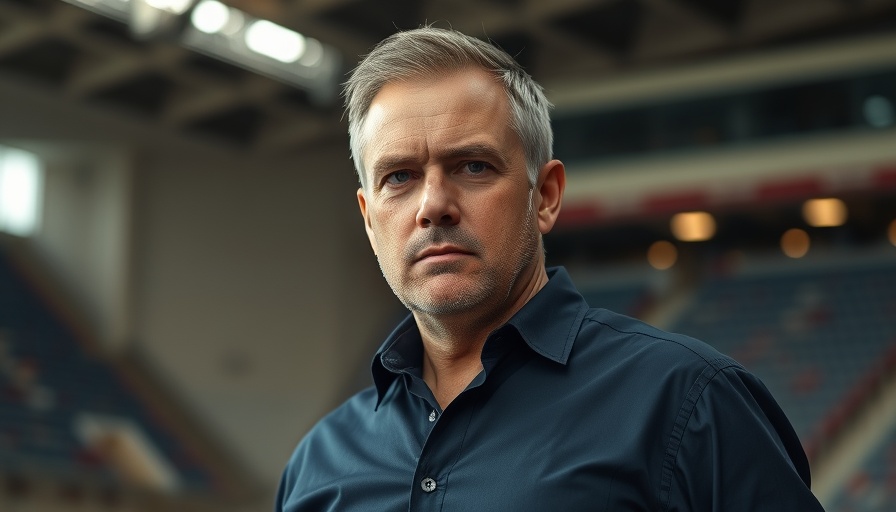
Understanding Chip Caray's Recent Incident: More Than Just a Slip of the Tongue
In a moment that reverberated through the sports community, Chip Caray, known for his role as a play-by-play announcer for the St. Louis Cardinals, accidentally uttered an anti-gay slur during a live broadcast. This slip occurred while promoting the Cardinals' Disability Pride Night, a purposeful initiative aimed at fostering inclusivity and celebrating diversity.
Though the word slipped out, Caray swiftly recognized his blunder, leaving a notable silence in the wake of his error. Fans and viewers alike quickly noticed the pause, with an almost palpable tension filling the air as Caray resumed commentary as if nothing had occurred. His network, the FanDuel Sports Network Midwest, responded to the situation by refraining from any form of punishment, marking the incident as an honest mistake.
The Broader Impact of On-Air Errors in Sports Broadcasting
This incident isn’t isolated; it reflects a broader pattern of broadcasting blunders in sports. Take, for instance, the case of Thom Brennaman, who faced severe backlash after using an anti-gay slur during a Cincinnati Reds broadcast in 2020. Unlike Caray, Brennaman’s on-air error led to his immediate removal from the broadcast team and has since become a cautionary tale about the consequences of careless remarks in a highly scrutinized field.
Such incidents prompt discussions about the responsibility that broadcasters have, particularly when addressing sensitive subjects. Should sports commentators receive additional training on inclusivity and language? As fans, we must ponder what more can be done to prevent these embarrassing slip-ups.
Counterarguments: Where Do We Draw the Line?
While many celebrate Caray's apparent lack of punishment as a sign of understanding, it raises questions about accountability. Critics argue that a lenient response could imply that such mistakes are trivial, potentially undermining the seriousness of harm caused by hate speech. The normalization of mistakes in high-pressure situations could lead to a slippery slope, where broadcasters might feel less pressured to carefully choose their words.
However, supporters contend that Caray's situation is more reflective of a genuine misunderstanding than malice. They argue that his long-standing career and previous track record merit a presumption of integrity. It is possible to advocate for accountability while recognizing that everyone can err.
The Responsibility of Broadcasters in Modern Society
Given society's growing sensitivity to language and its power, broadcasters must navigate these waters carefully. The debate extends beyond blunders and into a broader cultural acknowledgement of how language can perpetuate harmful stereotypes and sentiments. Organizations affiliated with major leagues like MLB increasingly prioritize inclusion, yet confusion in broadcasting indicates there is still a long way to go.
This incident serves as a flashpoint for discussions on how commentators must adapt to changing societal norms. It is crucial for current and aspiring sportscasters to understand their role in shaping narratives and contributing positively to setting an inclusive standard within sports culture.
What Can Fans Do?
Fans play a crucial role in shaping the environment surrounding sports and sports broadcasting. Engaging in discussions about language, accountability, and inclusion within our communities can foster greater awareness. Together, fans can advocate for more stringent training measures for broadcasters, ensuring that they possess the necessary tools to communicate effectively and respectfully.
Moreover, using social media to hold broadcasters and organizations accountable can reinforce the idea that fans value respect inclusiveness. The real change can stem from our collective voices demanding better from the airwaves.
Conclusion: Moving Forward in Inclusivity
Chip Caray's incident underscores that while mistakes can happen, it is our response that defines our commitment to creating an inclusive environment. As sports enthusiasts, we must recognize the power of our voices and join hands in promoting discussion and action around these crucial topics. Sport isn't just about the games; it is also about the culture we create around them.
So, how do we ensure that such errors don’t repeat? By starting conversations and promoting awareness, we contribute to a more inclusive future for sports.
 Add Row
Add Row  Add
Add 




Write A Comment